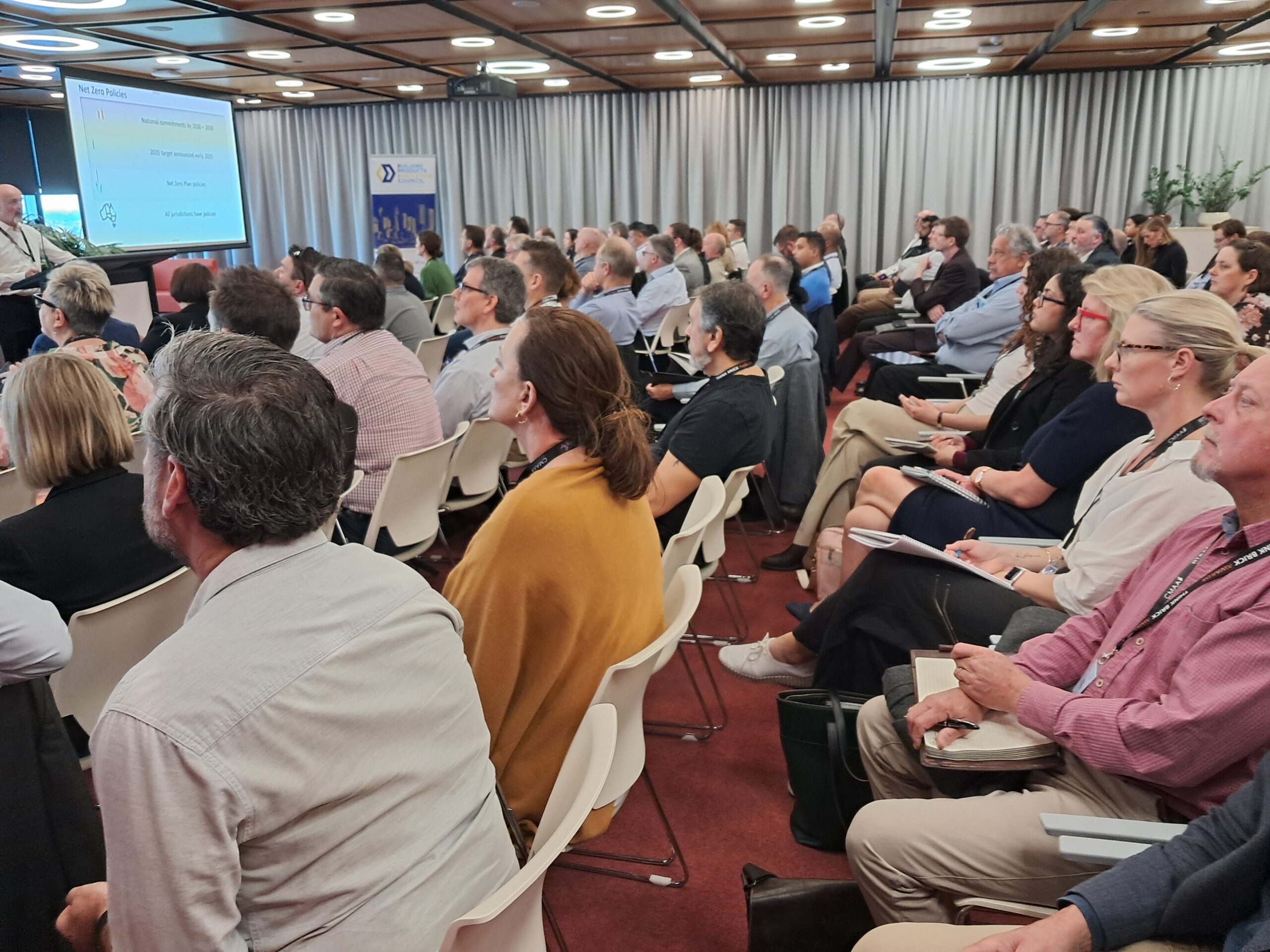
The Building Products Industry Council (BPIC) hosted our annual industry event – Building Product Leaders Forum 2024. The event was attended by over 100 participants and focused on advising senior decision-makers about issues to do with regulatory change, government policy, changes to product compliance frameworks, and potential new marketing/promotional/innovation opportunities for suppliers over the next 12 months and beyond. This was our 6th annual face-to-face briefing at Lendlease’s offices at Barangaroo in Sydney and we thank them for their ongoing support..
PRESENTATIONS:
Federal Government trajectory to a low carbon economy
Federal Government trajectory to a low carbon economy including Nature Positive, Net Zero Australia and a Carbon Border Adjustment Mechanism (CBAM). | STANFORD HARRISON – Director Commercial Buildings Policy – Department of Climate Change, Energy, the Environment and Water
Proposed reforms to NCC Evidence of Suitability and introduction of a Product Register Scheme
Major changes to the NCC Evidence of Suitability provisions have been agreed by the Building Ministers Meeting (BMM), which include Product Labelling requirements, Traceability requirements, standardised product information, increasing rigour of the EoS compliance pathways and the development of a National Building Product Register Scheme. | GARY RAKE – CEO – Australian Building Codes Board
ASBEC Embodied Carbon Issues Paper
ASBEC is working on a national plan to address embodied carbon as part of the built environment’s sectoral decarbonisation. The Issues Paper will make best use of the insights gained through engaging industry on past projects and work with industry on feasible solutions. | ALISON SCOTLAND – Executive Director – Australian Sustainable Built Environment Council
SILVER SPONSOR PRESENTATION – GS1 AUSTRALIA
Lendlease Scope 3 Emissions Protocol
To reduce Scope 3 emissions generated in upstream activities, such as the manufacturing of building materials, we are creating a data-sharing ecosystem to facilitate the digitised exchange of product-level emissions data across our vast supply chains. | ANN AUSTIN – Head of Sustainability – Lendlease
Australian EPDs for Building Products
Overview and implications of recent changes to the Australasian EPD guidelines, what to look for in comparing EPDs from different suppliers, what changes are coming in the future, the differences between EPD schemes from different countries and how that may impact EPD usage. | JONAS BENGTSSON – Director & Co-founder – Edge Impact
Upfront carbon or whole-of-life carbon: the impossible choice
Focusing too much on upfront embodied carbon in building products can miss opportunities for whole-of-life carbon abatement or even increase the whole project carbon budget by ignoring trade-offs. We can’t focus on one and ignore the other. | NICOLE SULLIVAN – Impact Director – thinkstep-anz
SILVER SPONSOR PRESENTATION – STANDARDS AUSTRALIA
Introducing the NABERS Embodied Carbon Tool
This new tool will be launched later in 2024. Find out how EPDs integrate into the tool and more. | KATIE EYLES – Sector Lead | Accelerating Net Zero Buildings – NABERS
NSW building regulation pathway
Outline of the new NSW building regulation pathway, including NSW Building Products and Methods Advisory Group, NSW Chain of Responsibility legislation and other changes that will directly impact building products suppliers. | THOMAS KEARNEY – Executive Director – NSW Building Commission
NSW Modern Methods of Construction Taskforce
This taskforce has been set up to help drive, shape and demonstrate the use and potential for off-site manufacturing and the streamline use of building products in NSW Government housing projects. | BONDE ILIEVSKI – Regional Portfolio Director – Southern Region – Homes NSW
SILVER SPONSOR PRESENTATION – ICC-EVALUATION SERVICE
Traceability Implementation Guide – Launch
The technology and standards already exist to implement digital building product traceability but what is needed is a common understanding about what information should be shared along the construction supply chains and what form that information should take. | DYAN JOHNSON – General Manager – Policy and Advocacy – Master Builders Queensland
Decarbonising Construction with a Common Data Model
Standards Australia, alongside the International Code Council and NBS, are leading a global alliance to develop a Common Data Model for the buildings and infrastructure sector to provide a consistent and interoperable way of describing and sharing information about building products, buildings and infrastructure from the planning and design stage through to construction, operation and maintenance. | ADAM STINGEMORE – Chief Development Officer – Standards Australia
ACRS Digital Verification and Traceability Project
Traceability is a key part of conformity assessment and with increasing demand for “The Golden thread” of traceability in building products, a system agnostic approach for product traceability is needed. ACRS has been moving forward with this and the next step is the introduction of system agnostic digital credentials on product labels. This enables people using opensource protocols to validate claims regarding the product. | DR. ANDREW WHEELER – Executive Director – Australasian Certification Authority for Reinforcing and Structural Steels

